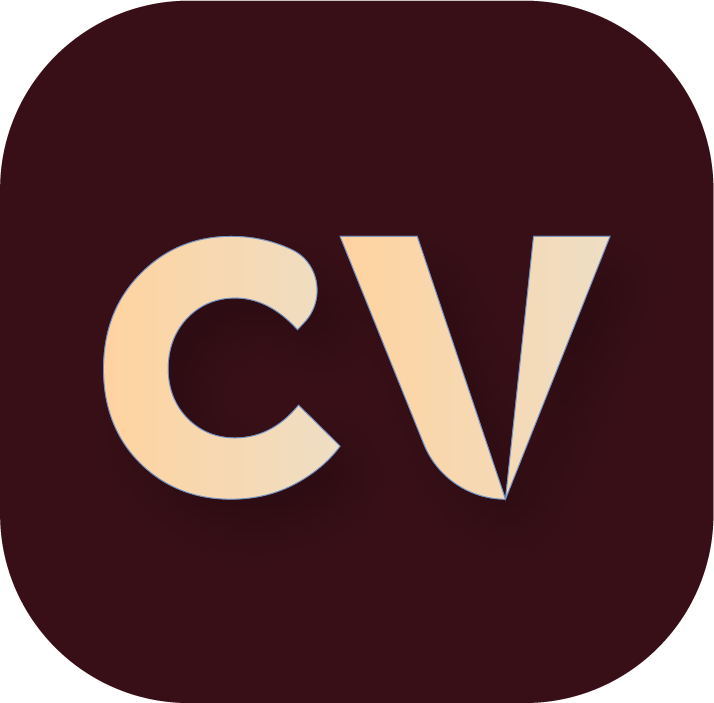Preparing for the Interview in 2023

Do you feel nervous about job interviews and wonder why they're necessary? You're not alone. Many job seekers question the point of an interview when they've already submitted their resumes. But in reality, resumes only provide a brief summary of your qualifications, work history, and education. It doesn't capture the nuances of who you are, your specific skills, or what sets you apart from other candidates. This is why interviews are so important. The interviewer is given the opportunity to get to know you through what you have written on paper. This blog post will explore why job interviews matter and how you can prepare to ace them. So, let's dive in!
Things to Remember
- Be Specific: During a job interview, you'll be asked about your skills, accomplishments, and personal traits. It's essential to have specific examples to support your claims and make a strong impression on the interviewer.
- Take Time to Rehearse: Practice makes perfect, so it's essential to rehearse for job interviews alone and with others. This will help you work on potential negatives and become more comfortable with the interview process.
- First Key Moments: The first few minutes of the interview are a crucial part of setting the mood for the rest of the interview. Making a great first impression and standing out from other candidates is essential.
- Use Guidelines: While you shouldn't have a memorized script for job interviews, it's helpful to have guidelines and critical phrases when answering common interview questions. This is how you stay on the right path and express yourself in the highest light. Prepare questions for the interviewer, demonstrating your interest in the company and industry.
- Introducing Yourself: Impressions count, and your introduction is the first chance to make a favourable one.
- Maintain eye contact: Maintaining eye contact is important during deployment, but be careful not to overdo it.
- Have a Firm Handshake: The handshake should be firm, but not too strong, and should be lightly squeezed once or twice before releasing.
- Starting on the Right Foot: Small talk is inevitable, but don't get bogged down. Keep your responses brief and to the point to avoid losing the interviewer's interest.
- Set a Tone:
- Set a professional tone for the job interview regardless of the interviewer's personality.
- Avoid projecting a perfect persona, as it may result in disaster or misinterpretation.
- Create a job interview persona that highlights your strengths and personality traits relevant to the position.
- Link the company's vision with your personal vision for your career to make a strong impression.
- Remember that you cannot control the outcome of the interview.
- Focus on conveying the key qualities that an interviewer is looking for.
Key Qualities
- Adaptability
- Competence
- Confidence
- Creativity
- Dedication
- Dependability
- Easygoing nature
- Enthusiasm
- Leadership ability
- Motivation
- Problem-solving ability
- Resourcefulness
Think of these qualities in every answer you give and everything you say, and you should have no problem projecting the image of a confident and competent candidate.
Discussing Your Skills and Experience
Read this post while preparing for an interview and think about what you should say when asked about your skills, work experience and personal interests. Let's explore common interview questions about critical skills and abilities and provide tips on answering them effectively.
- Q: What are your critical skills? A: After spending the past six years as a senior systems analyst, I've developed several essential skills, including business modelling, process re-engineering, software-package evaluation, and advanced programming capabilities in UNIX and C environments. I was happy to discover that these are the skills you are seeking. Would you like to know a specific example of my work?
Tip: Talk about your critical skills and how you'll use them in this job. Offer specific evidence, drawing parallels between your current or previous job and the job you're interviewing for. Don't be afraid to include questions in your answers.
- Q: What skills do you think are most critical to this job? A: As technology is ever-changing, I think keeping up with the latest marketing trends is essential. Knowing what new technologies exist and how to incorporate them into my marketing plans will keep me ahead of the competition. Creativity is essential to marketing; new ideas can become stale and stagnant. A successful marketing associate will always look ahead to the next big revolution. If I had not been aware of the critical role that the web would play in our day-to-day duties just a few years ago, my current company could have been wiped out by the competition.
Tip: Make sure you know how these skills relate to the position. Illustrate how the cited skills have helped you in your current and past situations.
- Q: If you were to stay in your current job, what kinds of tasks would you spend more time on and why? A: If I were to stay at my current job, I'd like to gain more experience in labour negotiating. In particular, I'd like to help negotiate labour contracts, resolve grievances at the step-4 level, and prepare grievances for arbitration. Though I have a solid background in all areas of human resources, I believe that a firm grasp of labour negotiating skills would benefit my long-term career goals.
Tip: Describe your most important skill and how you would like to develop it. Provide a clear explanation of how they relate to your career goals.
4. Q: What would you say is your greatest achievement?
How to answer it: My biggest accomplishment was leading a team that completed a complex project within a tight deadline. I could delegate tasks effectively and motivate my team members to perform at their best. It was a great satisfaction to see the project come to fruition.
This interviewee highlights their leadership skills and ability to manage a project successfully, showing that they are a capable and motivated employee.
5. Q: Educate me concerning when you confronted a tough spot at work.?
Answer: I once managed a client who was disappointed with our administration and took steps to drop their agreement. I serenely paid attention to their interests and worked with the group to foster an answer that resolved their issues. Through compelling correspondence and critical thinking, we held the client and further developed our administration going ahead.
This up-and-comer shows their capacity to deal with tough spots with incredible skill and viable critical thinking abilities, significant characteristics in any working environment.
6. Q: How would you deal with clashing needs and cutoff times?
The most effective method to respond to it: I focus on assignments in view of their significance and desperation and speak with my group and administrators to guarantee that everybody knows my responsibility and any possible struggles. I additionally attempt to be adaptable and versatile when surprising needs emerge, and I work to track down arrangements that address everybody's issues.
This interviewee shows their hierarchical and relational abilities and capacity to work cooperatively and track down arrangements in a unique climate.
7. Q: What is your inspiration for your work?
I'm inspired by potential chances to have a constructive outcome and add to the organization's prosperity. I like difficult new things, and acquiring new abilities and appreciate seeing the consequences of my diligent effort. What's more, working with a strong and cooperative group is an incredible inspiration for me.
This up-and-comer stresses their drive to succeed and have an effect and their craving for individual and expert development. They likewise feature the significance of cooperation and a positive workplace in their inspiration.
8. Q: How would you deal with clashes with colleagues or bosses?
The most effective method to respond to it: I accept correspondence is essential while managing clashes in the work environment. On the off chance that there is an issue, we will attempt to bargain straightforwardly and tranquility with the individual concerned. I will pay attention to them and attempt to track down an answer that works for the two of us. On the off chance that the contention includes an unrivaled, I approach what is going on consciously and expertly and attempt to track down a commonly valuable goal.
This interviewee stresses their correspondence and compromise abilities, which are fundamental in any work environment. Also, they show their capacity to cooperate to find arrangements that benefit all gatherings included.
9. Q: What are your drawn-out professional objectives?
Here is my response. My drawn-out vocation objective is to develop expertly and take on progressively requesting jobs and obligations. I'm focused on continuous learning and expert turn of events and desire to ultimately take on an influential position inside the organization.
This competitor shows their desire, devotion to their vocation, and ability to learn and improve consistently. They additionally feature their craving to advance inside the organization, which can exhibit their obligation to the gig and the association.
10. Q: How would you manage pressure and strain at work?
The most effective method to respond to it: I attempt to remain coordinated and focus on assignments to really deal with my responsibility. If vital, I might move back from my work area for a couple of moments or enjoy some time off to re-energize my batteries. Likewise, practice and other taking care of oneself can assist with overseeing pressure and keeping a sound balance between fun and serious activities.
This interviewee shows their capacity to deal with pressure steadily and gainfully, stressing the significance of taking care of oneself and using time effectively. They likewise exhibit acknowledgment of the significance of a balance between fun and serious activities that is alluring to bosses.
Look at this The Top 5 Strategies to Ace the IELTS Exam 2023
Kew Words and Phrases
- Important skills
- Advanced capabilities
- The skills you are seeking
- Specific examples
- Ever-changing technology
- Latest marketing trends
- Creativity
- New ideas
Conclusion
Interview IELTS preparation can be a daunting task, but with the right approach and attitude, you can increase your chances of success. Researching the company, reviewing common interview questions, and practising your responses are all important steps in preparing for an interview. It is also important to dress appropriately, show up on time and make a good first impression. During the interview, try to be confident, honest, personable, and actively listen to the interviewer's questions and feedback. Remember that the interview is an opportunity for both you and your employer to find out if you are a good fit for the job. Be yourself and use your strengths and skills. With these tips in mind, you can approach your next interview with confidence and be set for success.
Experience the interactive and personalized learning approach of ESOL's language courses by booking a demo. Discover our innovative teaching methods and embark on a language learning journey tailored to your needs.

















.png)